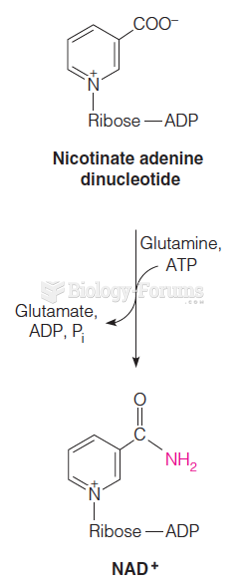|
|
|
Did you know?
Essential fatty acids have been shown to be effective against ulcers, asthma, dental cavities, and skin disorders such as acne.
Did you know?
On average, the stomach produces 2 L of hydrochloric acid per day.
Did you know?
The shortest mature adult human of whom there is independent evidence was Gul Mohammed in India. In 1990, he was measured in New Delhi and stood 22.5 inches tall.
Did you know?
Approximately 25% of all reported medication errors result from some kind of name confusion.
Did you know?
The horizontal fraction bar was introduced by the Arabs.







